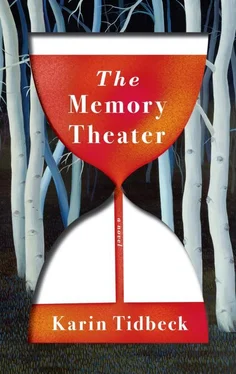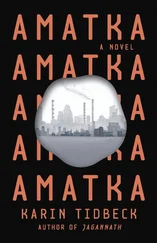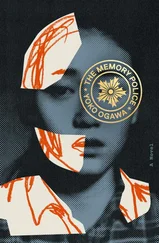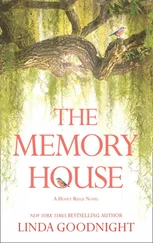After a while, she heard footsteps approach again and looked up. Ghorbi loomed over her.
“One of them is still alive,” she said. “Fortunately. The crossroads is still functional.”
“I just want to go home,” Augusta said. “I’m tired.”
“I don’t kill,” Ghorbi said. “I made a vow long ago to follow a god that will not allow it. But I will take you back to your Gardens. You will do less damage there.”
Ghorbi started walking in a direction that was ever so slightly different from the one Augusta had taken last. She stopped and motioned ahead of her.
“Go on,” Ghorbi said. “Go. Before I change my mind about my vow.”
Dora and Albin traveled south between the mountains. They rested under trees or in the occasional empty barn along the way, getting up at dawn to move on south while the short day lasted. Dora relished the deep silence of the snowy mountains, the exhilaration of going downhill into a valley, even the slog of putting on ski skins and climbing up the other side. Her body seemed built for it. Albin was doing all right, too; he had turned rosy, and his beard had thickened. He smiled more often than not. He was the one who got up first in the mornings, eager to move on. He spoke about his family along the way: his affable father who made furniture and took Albin on fishing trips; his quiet mother who sewed dresses for fancy ladies and made him help her in the kitchen. He couldn’t wait to see them. They would be older now, but not terribly old. Perhaps there would be younger siblings.
One day they crested a hill and came into a valley where the snow had been broken up by rain. They left their skis in an unused sheep shelter and continued on foot.
“We’re getting closer,” Albin said. “I can feel it. What if they don’t recognize me?”
His smile had vanished. Dora put an arm around him.
“I’m here,” she said. “I’m with you.”
Albin looked up at her. “I wouldn’t be here otherwise.”
He tugged his cap down around his ears and continued into the valley, where tall pines swallowed the daylight. Mossy boulders lay strewn about on the ground.
Albin pointed at a particularly large rock. “My mother said they were thrown here by giants,” he said, and smiled.
Patches of snow lingered in the hollows at their base.
“This is so familiar,” Albin said. “I think I used to hide here.”
He walked ahead of Dora, at first hesitant, then more confident. An aspen tree broke the monotony of pine. Then another. As pine gradually gave way to deciduous forest, the air grew damp. An overcast sky became visible through the branches. The ground was soggy with melting snow.
In the evening they came to a wall made of piled-up stones. On the other side ran a trail. Albin climbed over the stones and started walking down it. In not too long, they saw a cluster of small wooden houses with white corners that almost shone in the murk.
“There were two apple trees in the yard,” Albin said to himself.
They walked down the trail, past houses with empty windows, with buckling porches and ruined front steps. Debris lay here and there in the yards, humps with sharp edges.
“Where is everyone?” Dora wondered.
“Maybe they’re all in the fields or at church,” Albin said, but he didn’t sound convinced.
He suddenly stopped.
“There,” he said. “There it is.”
The two-story house was slightly larger than the others. It had a small sagging porch, on which stood a bench and a bucket. The two enormous apple trees that flanked the path up to the house were gnarled and unkempt. From one of them hung two tattered ropes.
“My father put that swing up for me,” Albin whispered.
“Are you going to knock?” Dora said.
Albin remained where he was. “It looks different,” he said. “And like no one’s home.” His lower lip trembled. “I don’t know if I can do this.”
“I’ll go,” Dora said.
She went up the path and stepped onto the porch, which complained under her weight. Nothing moved inside. Dora knocked on the door. When no one came to open it, she tried the handle. The door was locked. Dora looked over her shoulder. Albin hadn’t moved: he stood in a puddle on the path, his face wan in the weakening light. Dora pulled at the handle, hard. The door came off its hinges. She caught it and propped it up against the wall.
The hall beyond was empty and smelled of mildew and dust. Dora heard Albin’s footsteps behind her, then his gasp. He went past her and walked into a room on the right.
“Mamma?” he called from in there. “Pappa?”
His footsteps moved away, up a set of stairs. His voice called out, over and over. Then silence.
Dora followed. Nothing stirred inside the house. The little corpses of flies and spiders rested on the windowsills. She found Albin in a room on the second floor. He was sitting in a small alcove, head in his hands.
“They’re gone,” he said. “They left without me.”
Dora said nothing, just sat down next to him and held him as he cried. Eventually, he fell asleep. Then she laid him down and went downstairs. The chill had deepened outside; the puddles on the ground were icing over. Dora’s breath came out in great clouds. The cloud cover broke, and a few stars came out. Dora stood there, listening to the noise of puddles freezing and birds rustling in the forest, until the crows woke up and lights came on in the house farthest down the road.
Albin came outside. He looked shivery in the open air. Dora wrapped her arms around him from behind to warm him up.
“Look,” she said. “Someone’s there.” She pointed to the little house where the lights were turned on.
—
The man who opened the door was very old. He looked at Dora and Albin in surprise.
“Who might you be, then?” he said.
“My name is Albin,” Albin said. “I used to live here. I’m looking for my parents.”
“Very well,” the man said. “My name is Börje. Come in, won’t you?” he added, like it was the most natural thing in the world.
—
Börje showed them into his kitchen and boiled a brew of ground seeds and water at the stove. Dora and Albin sat in silence while he poured them each a cup.
“Now, then,” he said. “Tell me what you’re doing out here.”
“My parents,” Albin said. “Edvin and Amanda. They’re not here. Where are they?”
“Edvin and Amanda Jönsson?” the old man asked.
Albin nodded. “I came back to look for them. They’re not there. The house…” His breath caught. “The house is empty.”
Börje was quiet for a long moment. He looked at Albin, then at Dora, and seemed to make a decision.
“There was a boy,” he said. “The Jönsson boy. He disappeared. The whole village looked for him. His mamma swore that he had been taken by the fair folk. Of course, no one believed her. They all said that he must have gotten lost in the forest or drowned somewhere, or wolves took him.” He peered at Albin. “You’re that boy, aren’t you.”
Albin nodded. He sat on the edge of his chair, eyes brimming.
The old man sucked at his front teeth and sipped from his cup. “So it’s true then.”
“Where are they?” Albin asked.
“This all happened when I was little,” Börje replied. “My mamma and pappa told me about it. They never let me go into the forest on my own.”
“Where are my parents?” Albin repeated.
Börje put his hand on Albin’s. “They’re gone. They died many years ago. I’m sorry.”
Albin stared at his cup.
“How many years?” he said eventually. “Since I left.”
“Oh,” the man said. “I’m eighty-five. I’m the last one here in the village. Everyone moved to the city when the foundry closed down. Maybe they’ll come back if the war comes here. But for now, it’s just me.”
Читать дальше










![Карин Тидбек - Аматка [ЛП]](/books/438406/karin-tidbek-amatka-lp-thumb.webp)

